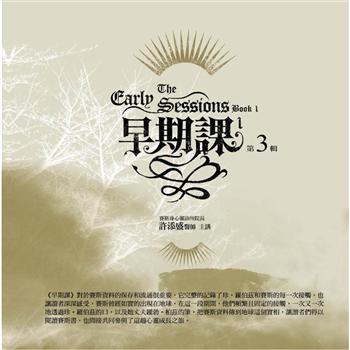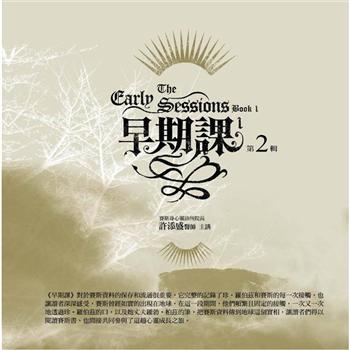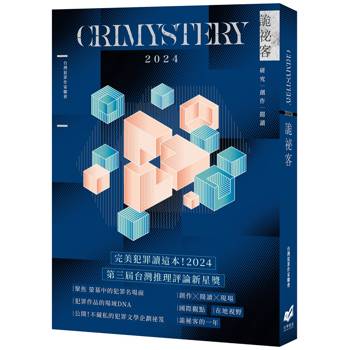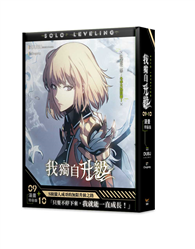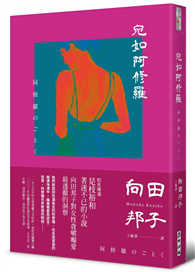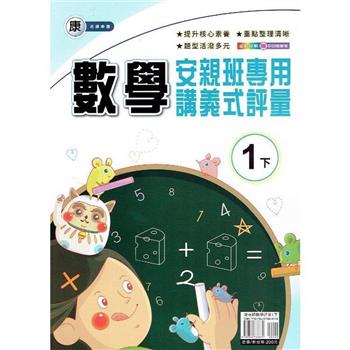摘要
關於詩歌觀念的考察,本文從傳統「論詩詩」研究的角度,轉而採「論詩詞彙」的視野,既是研究材料、範圍的擴大,亦是方法論上的差異。全文以詞彙為考察中心,結合認知語言學、認知隱喻學、廣義修辭學等方法,直接從詞彙中考察詩歌思想與觀念。全文共由五章組成,各章要點歸結如下:
第一章緒論說明以唐代為研究對象的原因,回顧相關研究成果,並揭示以「詞彙」切入詩歌觀念的考察角度。
第二章「詩與經驗現實:隱喻的視野」是從隱喻的角度來考察「詩與經驗現實」的關係。針對唐詩中許多指稱詩歌創作行為或過程的隱喻詞彙,如「得句」、「冥搜」、「尋詩」、「搜覓」、「拾句」等「搜覓系列隱喻」;「入詩」、「詩中」、「詩外」、「搜羅」「吟盡」等容器隱喻;以及將詩歌創作類比為造化生育萬物的「造化相關隱喻」等現象,探討在當時人們的觀念中:詩是如何產生的?詩人如何看待詩歌創作的行為?他們是如何隱喻式地理解詩歌與經驗現實、外在世界的關係。
第三章「詩與經驗現實:觀看的視野」同樣聚焦於詞彙現象,探討詩歌作為觀看行為的可能性機制,在詩歌「視框」篩選機制的作用下,不但形成一種詩學觀物方式,且視覺對象被話語主體以不同的修辭表述,並生成一系列的風景語彙系統,形成一套風景話語,表現了人與自然的新關係。當詩歌成為一種觀物的框架,世界被視為「詩歌」來觀看(閱讀),話語主體對於入眼之自然景色,也亟欲以詩的形式來把握、占有它。而「吟看」系列詞群的出現揭示了潛隱在語言背後的觀察方式,顯示話語主體意識到詩歌創作改變了他們的視覺經驗。此外唐代詩人常常以競爭的意識在看待自然景色,亟欲在詩(藝術)與景(真實)之間一較優劣、競短爭長,詩歌往往成為風景的評價標準,風景也常成為衡量詩才的尺度。
第四章「製造『詩人』」探討:唐人觀念中的「詩人」,這是透過詩歌話語呈現出來的「詩人」,或可稱之為一種關於「詩人」的「話語」。本章參酌史學家Peter Burke《製造路易十四》一書中「傳媒製造形象」的角度,以及Goffman以「表演」來探討自我概念等視角,來審視唐代對於「詩人」的集體想像與塑造。「詩人」身份不是自然而然存在的,唐代的創作者透過稱謂的使用、形象的塑造、姿態的展演、創作情懷的描述、對詩歌態度與價值的宣稱等,「詩人」從各個層面被論述性地生產出來,成為文化意義系統的一部份。
第五章除了全文要點歸結外,主要簡述本文以「詞彙」為考察中心的發現與貢獻,並提出以「詞彙認知」作為「唐詩詮釋」與「詩學觀念」研究新路徑的可能。
Abstract
This dissertation take the perspective of “poetry vocabulary”, and try to research the poetic idea, which different from the research of “Poems on Poetry” such as traditional research method. The research perspective of “poetry vocabulary” is not only to expand the range of the study, as well as difference in methodology. This dissertation take the view of “Key words” paradigm, in combination with other methods such as Cognitive Linguistics, Cognitive Metaphor and Rhetoric in a broad sense, and try to research poetry ideas and concepts from the vocabulary. This thesis consists of six chapters, each chapter are summarized as follows:
The first chapter explains the reason for the study of Tang Dynasty, and explain how to research poetry ideas and concepts from the vocabulary.
The second chapter “Poetry and empirical reality: Metaphor Perspective” is from the perspective of metaphor to examine the relationship between “poetry and empirical reality”. Thia chapter focus on the metaphorical vocabulary about poetry writing, through which we can realize people's idea of poetry such as “Poetry is how to produce”, “How poet look at the behavior of poetry writing?” etc.
The third chapter “Poetry and empirical reality: Viewing Perspective” also focus on the vocabulary and try to analyze poetry as a possible mechanism of viewing behavior. Under the influence of Poetry as a selection mechanism, a poetic view way of things is formed, and vision objects are formed as a series of rhetoric vocabulary group, thereby a series of landscape discourse is formed. The landscape discourse shows the new relationship between people and Nature.
The fourth chapter “The making of the ‘poet’” study the concept of poet in the Tang Dynasty, which is presented through poetic discourse. In this chapter, Peter Burke’s “The fabrication of Louis XIV” and Goffman’s “The presentation of self in everyday life” are referenced to study the “Poet discourse” In the Tang Dynasty.
The last chapter briefly generalize the contribution of this dissertation, and propose a new perspective as the possibility of poetry research method, which research poetry ideas and concepts from the vocabulary.
第一章 緒論(摘錄)
第一節 論題的形成
一、為何是唐代:詩的時代與論詩詞彙的湧現
詩歌在中國文學史與文化史上的重要性毋庸置言,而中國古典詩歌發展至唐代盛況空前,不但體制齊備、風格多樣,詩人、詩作繁多,且風會普及於社會各個階層,可謂「詩的時代」。在這個時代,詩才、詩名成了為人所稱道、重視的一種文化資本,詩人階層受到頗大程度的推重與尊崇。且詩人透過詩歌創作獲得了某種話語權,詩作在某種程度上引導著社會的風向,並左右社會大眾的觀看角度。龔鵬程先生曾從科舉制度等層面探討唐代的時代精神,將唐代視為一個文學崇拜的社會,並認為這種崇拜是屬於社會集體的精神活動,在這種崇尚文學的文化環境中,詩歌不再只是個人情意表白或心境的記述,而是必須放入社會人際網絡中起作用;在文人的酬唱等活動中,文學作品也脫離了「作者感物吟志」的傳統結構,必須放在文人階層的活動中來了解。在這樣一個文學崇拜的時代,「文學及文人創新了整個時代新的習慣、道德和思想方式,顯示了社會的理想和規範,提供了榜樣。一切思想方式、趣味傾向、表達感情的方法及價值標準,都由文學中來。這是一個文學的社會」。從前述諸現象觀之,作為唐代的代表文體與文學主流的詩歌,在很大程度上成為唐人觀看世界與思考人生的一個重要介面。某一文學樣式在某時代占主導地位,並非只是文學領域的問題,巴赫金曾談到文學體裁與現實的關係:「每一種體裁都具有它所特有的觀察和理解現實的方法和手段」,不同的體裁因而是文學藝術觀察現實、把握現實的不同樣式。學者陶東風亦有類似觀點,其研究文體演變與文化的關聯,認為文類作為一種話語體式,與人感受、體驗世界的方式之間有著對應性,「一種文學類型代表了特定的體驗世界的方式以及語言結構的方式,它在特定時代的興盛和衰落都反映著那個時代作家的精神結構和文化心理結構以及語言操作結構的變化。」每種文類有其內部規範,當作家以某一文類去表現世界時,其感覺方式、看待世界的方式,是受文類規範的引導與限制的。文類彷彿一設定好視角與焦距的鏡頭,引導與限制作家「看到什麼?」「怎麼觀看?」因此或許可以說:文類的選擇,即是「觀看」方式的選擇。在唐代,詩歌是「如何表現」世界的?人與世界之關係,透過「詩歌」這一文類框架所呈現出來的是怎樣的景
觀?這是本文所關注的焦點之一。傳統的唐詩研究,通常是理論批評與詩歌作品分而論之。詩歌方面的研究,粗略觀之,或「分期」以論之(初、盛、中、晚為最常用的分期框架);或以詩歌派別分論之(田園、山水、邊塞等);或以個別詩人論之;或著眼於詩歌體式(律詩、絕句、樂府詩);或聚焦於主題、意象、形象、題材、風格等;或關注詩歌與其他領域之交涉(詩與宗教、詩與繪畫、詩與音樂)等等,已累積豐碩的研究成果,這些研究亦具價值,然而,上述的研究取向所關切的焦點多半是詩歌「表現了什麼?」亦即詩歌表現的題材、對象,而非詩歌「如何表現?」亦即詩歌處理題材、對象的方式,此一問題亦成了本文思考的起點。
關於唐詩的研究,至今已累積了豐碩的研究成果,這個領域究竟是否還有新的開拓空間?顏崑陽先生曾論及近幾十年來,台灣中文學界的古典詩學研究,認為其大致以「純粹性審美」的詮釋視域為主流,研究取徑也存在著「內部」與「外部」的截然二分,而相對於上述主流性的詮釋視域,顏先生繼續談到近年來兩岸學界所展現一種新的轉向,如台灣中文學界近些年的中國古典詩學研究,明顯受西方理論如性別論述、殖民論述、身體論述、空間及地方論述等等所影響,「其所關注的議題很明顯的是從所謂文學內在的審美心理經驗及作品的語言形構,轉向外在的文化、社會情境,探討在這情境中,人之與人、與物、與事的存在『關係』,文本的生產過程及其符碼化的機制與形式。詩的文化性、社會性意義取代純粹審美性意義」,而大陸地區這些年則出現了應用「文化詩學」於中國古代詩歌研究之潮流,也有了不少論述成果。唐詩研究同樣也籠罩在這些潮流趨向下,在出現大量的、豐碩的研究成果後,唐詩是否還存在新的研究視角與論述空間?蔡英俊先生在談到中國古典詩歌研究時,曾說到:「如就詮釋學的角度來說,『傳統』與『現代』總是需要經由不同的『視域』之間的相互調整才可能傳接並被理解,而所謂的『現在』,往往是因應新的歷史情境與知識材料而必須對於『傳統』進行重新的建構與理解」,就此角度觀之,只要繼續出現新的歷史情境與知識材料,我們就永遠存在著和「傳統」對話、重新理解傳統的可能。顏崑陽先生在前述的當代中國古典詩學研究的趨勢與詮釋視域的回顧之後,也提到:中國古典文學研究不是妄想找到唯一、絕對正確的文學真理,而是應在「當代」的時間位置上,「能夠因應文化、社會因素、條件的變遷,而提出什麼新的學術問題?開顯什麼新的詮釋視域?又能以什麼新的方法解決問題?並且從而建構哪些由中國文學之歷史語境自身所衍生的基礎理論,而反過來轉用於中國文學的研究?」筆者曾在論文指導老師的帶領下,接觸了Mark Johnson等學者的認知隱喻學,在此之後重新閱讀筆者較為熟悉的唐詩文本,赫然發現唐詩中存在不少詞彙隱喻現象,並進而翻閱《全唐詩》,發現其中存在許多與詩歌創作相關的詞彙,這類詞語中的一部分亦已為學者所注意,如楊玉成先生發現:「『覓搜』、『冥搜』已成為晚唐五代流行的術語」,「中晚唐『詩癖』『詩病』『詩魔』的說法開始頻繁出現」。然而學者雖注意到這些詞彙的出現,然詞彙並非其研究重點,詞彙群中隱藏著的對於詩歌的思考模式與創作態度等,並未被特別注意。
其實,不只以上這些,此時出現與「詩」相關的詞語,尚有:詩業、詩債、詩膽、詩腸、詩心、詩景、詩境、詩敵、詩才、詩客、詩友、詩伴、詩名、詩譽、詩價、詩玄、大雅、風雅、風騷、雅道、五字、麗什等等;談到詩歌創作的詞語則有:冥搜、搜覓、搜句、搜詩、搜吟、覓句、覓詩、尋詩、精搜、搜奇、搜難、搜羅等;此外,詩人稱人或自稱:吟身、吟魂、吟魄、詩魂、吟骨、詩老、詩叟、詩家、詩流、詩客、詞客、詞人、辭客;或以「吟」為修飾語,描述自身吟詩狀況的詞也相繼出現:吟立、吟步、吟倚、吟繞、吟坐、吟望;「詩句」也成為詩人關注的焦點,而出現:佳句、麗句、警句、大句、新句、清句、冷句等詞。這些與詩歌相關的詞語在唐詩出現,並在中晚唐時期日趨增多,有兩個值得注意的面向:其一、這些關於詩歌或詩歌創作的詞語有不少是修辭性話語,特別是隱喻;其二、有極大部分是唐代之前不曾出現的詞彙,而為新詞語,或者是舊詞但有了新的用法與意義。先談第一點:語言的「修辭性」並不只是文學的修辭手法,如「隱喻」作為一種認知方式,「其背後所代表的,可以是某一個語言社群或文化的行為或思維模式。」此外,修辭「可能帶有意識形態的內涵」,「修辭的形式本身也會蘊含價值觀念」,語言不只是描述現實,更是建構現實,透過這些關於詩歌的修辭性話語,或許可以窺見在唐人的心中,「詩」為何物?詩的價值何在?其次,「新詞語的出現」問題:「詞語」並非只是語言學的問題,自二十世紀「語言學轉向」(the Linguistic Turn)之後,語言、詞語現象,已漸漸從傳統語言學的領域,進入哲學、社會、文化等研究者的視野,如新文化史家Peter Burke就說道:「文化史學家為什麼要涉及語言?」「理由之一是,在任何時候,語言都是一個敏感的指示器,能表明文化的變遷」。詞語變化或新詞語的出現,往往是文化作用力的產物,特別是外來文化的影響,已有學者從這個角度去審視文化變遷或跨文化交流的現象,如劉禾教授就透過詞語譯介的「詞義」的交流,闡明清末民初「中國的現代性」議題,其云:「新詞語和新語詞的建構是有關歷史變遷的極好喻說」。而鄭毓瑜教授則從另外的角度,以「舊詩語」如何面對「新世界」的視角考察了出使日本的中國「詩人」黃遵憲以「具有尺度性質」的舊詩語作為描述工具,「為新世界代言」之際的種種「交接或妥協」。這些學者的研究方法所開啟的新思路,給予筆者不少啟發。此外,在唐代文論中很重要的「意境」一詞,在《全唐詩》中竟不曾出現,而前述的論詩詞彙,有非常大量是唐代詩論、詩評中所不曾出現的,可見在唐詩內部自形成一套不同於詩論、詩評的論詩語彙系統。
至於唐代的論詩詞彙群,雖可肯定其中多為新詞彙,然要十分確切地確定這些詞彙中究竟有多少是唐代產生的新詞,畢竟有其難度,筆者檢索「搜韻」網站與《先秦漢魏晉南北朝詩》,且以本文所論詞彙(三百六十多個)為參照,其中唐代之前已出現的詞彙有:胸懷、胸臆、造化、玄造、真宰、無主、主人、驅使、風景、景物、吟情、發興、牽率、此景、物色、物華、役思、役神、苦思、苦調、志業、世業、吾道、此道、雅道、難擬、關門、清氣、秀氣、正氣、冥搜等詞,然這些詞彙在唐代以前詩作中,並未被用於詩歌創作意識的脈絡中,至唐代才被納入詩歌創作的脈絡下而被運用,並產生新的意義,可說是舊詞新義。又如:才子、才人、不才、無才、多才等詞亦出現於唐代以前,但其用法並未限定於「詩才」。詩人、詞人、騷人、辭人等詞亦曾出現,然「詩人」大多指詩經作者,「詞人」則指擅長文詞的人,不限於詩歌創作者,「騷人」指屈原,「辭人」指辭賦作家。真正出現於唐之前,並和詩歌創作有關者只有:能詩、新詩、行吟等詞,然均極少出現,不像唐代這樣大量被使用,且這些詞彙出現在唐前的詩中時,話語主體並沒有詩歌創作這樣的意識。至於,上述「舊詞新義」的現象應如何看待?漢語詞彙學家曾談到漢語造詞法中的一種「語義造詞」,是指一個詞由於語義的演變而產生新義,而此新義偏離原義較遠,成為一個新詞,若依此說法,即使產生於唐以前,然並未用於談論詩歌創作的詞彙,至唐代才被納入詩歌創作的脈絡下而有了新的用法與意義,也算是新詞。因此,除了多數產生於唐代的新詞彙外,本文即是在前述意義上將舊詞新義視為新詞彙。因而,本文的對於「新詞」的理解,不僅是「詞義」層次上的,還是觀念、概念層次上的,此點若連繫語言學家或關鍵詞研究學者對於「詞化」、「詞彙化」的說法,會更清楚。語言學家曾談到:「詞彙化」的過程,「也就是以詞為整體經驗當中的一部分命名」,詞彙相關研究學者亦云:「使用一個詞(包括既有詞和新造詞)表達一個概念叫『詞化』。詞化是對概念的命名」,「對某事物詞彙化的行為就是將其作為一種約定俗成的人類思維範疇的行為」。在詩中談論詩歌創作一事,畢竟很大的可能是唐代開始才出現的現象。而以創作者的角度談論詩歌,亦非在詩歌文類出現、成立期始即出現的現象,魏晉以前,詩歌很大的作用在於「賦詩以明志」的詩用功能,較少從詩歌創作者的角度去論詩的言論,顏崑陽先生曾提到:「魏晉之後,以辭章寫作為專業的文人階層興起,而『文體』觀念也在歷史反思中形成。這歷史時期才開始從『讀詩者』、『用詩者』轉到『作詩者』的位置去思考、發言,將『詩之體』顯題化,去論述『如何作詩』、『如何作好詩』的問題;以及『詩之體有何特徵』、『詩之體對創作與批評有何規範作用』的問題」,而唐代以前這些論詩的文獻幾乎皆存在於「詩歌外部」,以詩論、詩評等型態出現。至唐代才大量出現在「詩歌內部」談論詩歌的現象,因而唐代論詩詞彙的激增現象或許可從此一角度去審視,並結合前述語言學家談到概念的「詞彙化」的說法來看:因為有了這樣創作者自道「創作經驗」的背景,以及創作相關「概念」的產生,才會產生論詩概念的詞彙化現象,這是一種將經驗納入思維範疇,形成概念,並定型於「詞彙」的行為過程,因而即使是舊詞新義,仍可視為是一種以不造詞而出現新詞的命名事物之方式,本文將唐代的論詩詞彙視為新詞的意義即在於此,下文中第三章第二節標題「新詞彙群與風景修辭」中的「新詞彙」,也是在此種意義下的用法。根據語言學家的說法,通常,在某一文化中,在日常生活中愈是重要、愈是受到關注的事物,就愈容易因人們觀察角度的細微區別,而形成認知概念略有差異的不同詞彙。這種現象在中國古代文獻中亦有例證,如「馬」在《詩經》中的稱謂有五十多個,而現代漢語幾乎只用一個「馬」字而已。唐代是一個「詩的時代」,關於詩歌創作的種種談論,不僅出現於詩格、詩評、詩論等著作中,而且也出現於詩歌文本中,由詩中的話語主體自道關於詩歌創作的種種,而其存在層面之廣泛,並不限於傳統意義上的「論詩詩」。這種變化,應不是突發於唐代的現象,而有一漸進發展的過程,聯繫前述顏崑陽先生談詩之文體與創作者意識的關係,可大略得知此種變化的漸進過程。
| FindBook |
有 6 項符合
詩中「詩」:《全唐詩》中論詩詞彙之考察的圖書 |
 |
詩中詩: 全唐詩中論詩詞彙之考察 作者:吳品萫 出版社:國立臺灣大學出版中心 出版日期:2022-08-19 |
| 圖書選購 |
| 型式 | 價格 | 供應商 | 所屬目錄 | $ 474 |
詩 |
$ 528 |
中文書 |
$ 528 |
中國古典文學 |
$ 540 |
文學作品 |
$ 540 |
小說/文學 |
$ 570 |
大學出版品 |
|---|
| 圖書館借閱 |
| 國家圖書館 | 全國圖書書目資訊網 | 國立公共資訊圖書館 | 電子書服務平台 | MetaCat 跨館整合查詢 |
| 臺北市立圖書館 | 新北市立圖書館 | 基隆市公共圖書館 | 桃園市立圖書館 | 新竹縣公共圖書館 |
| 苗栗縣立圖書館 | 臺中市立圖書館 | 彰化縣公共圖書館 | 南投縣文化局 | 雲林縣公共圖書館 |
| 嘉義縣圖書館 | 臺南市立圖書館 | 高雄市立圖書館 | 屏東縣公共圖書館 | 宜蘭縣公共圖書館 |
| 花蓮縣文化局 | 臺東縣文化處 |
|
|
圖書介紹 - 資料來源:TAAZE 讀冊生活 評分:
圖書名稱:詩中「詩」:《全唐詩》中論詩詞彙之考察
本書受觀念史、概念史研究範式的啟發,以詞彙為考察中心,結合認知語言學、認知隱喻學、廣義修辭學等方法,從《全唐詩》中的論詩詞彙考察唐代的詩歌思想與觀念,包含詩與經驗現實關係、詩與景的關係、唐人觀念中的「詩人」等,旁及唐詩創作主體的人生觀、世界觀,以及時代價值觀與文化心態等變化,並嘗試提出以「詞彙認知」作為「唐詩詮釋」與「詩學觀念」研究新路徑的可能。
自二十世紀「語言論轉向」之後,從語言的角度來研究思想和思維,盛行於各個領域,關鍵詞範式成了研究熱點。「山水」、「風景」等議題也是當代跨文化、跨界域的重要研究議題之一。本書的研究結果是對前述議題的回應與參與,而從詩語變化與新詩語現象所發現的文化轉型跡象,也回應了唐宋變革的學界議題。
作者簡介:
吳品萫
國立臺灣大學中國文學系博士,研究領域以唐代詩歌為主,亦關注古典詩詞領域。
章節試閱
摘要
關於詩歌觀念的考察,本文從傳統「論詩詩」研究的角度,轉而採「論詩詞彙」的視野,既是研究材料、範圍的擴大,亦是方法論上的差異。全文以詞彙為考察中心,結合認知語言學、認知隱喻學、廣義修辭學等方法,直接從詞彙中考察詩歌思想與觀念。全文共由五章組成,各章要點歸結如下:
第一章緒論說明以唐代為研究對象的原因,回顧相關研究成果,並揭示以「詞彙」切入詩歌觀念的考察角度。
第二章「詩與經驗現實:隱喻的視野」是從隱喻的角度來考察「詩與經驗現實」的關係。針對唐詩中許多指稱詩歌創作行為或過程的隱喻詞彙,如...
關於詩歌觀念的考察,本文從傳統「論詩詩」研究的角度,轉而採「論詩詞彙」的視野,既是研究材料、範圍的擴大,亦是方法論上的差異。全文以詞彙為考察中心,結合認知語言學、認知隱喻學、廣義修辭學等方法,直接從詞彙中考察詩歌思想與觀念。全文共由五章組成,各章要點歸結如下:
第一章緒論說明以唐代為研究對象的原因,回顧相關研究成果,並揭示以「詞彙」切入詩歌觀念的考察角度。
第二章「詩與經驗現實:隱喻的視野」是從隱喻的角度來考察「詩與經驗現實」的關係。針對唐詩中許多指稱詩歌創作行為或過程的隱喻詞彙,如...
顯示全部內容
目錄
第一章 緒論
第一節 論題的形成
第二節 文獻回顧
第三節 研究材料與方法
第二章 詩與經驗現實:隱喻的視野
第一節 隱喻、詞彙與認知
第二節 搜尋與獲得:搜覓系列隱喻
第三節 獲取與收藏:容器系列隱喻
第四節 管領與驅使:造化相關隱喻
第三章 詩與經驗現實:觀看的視野
第一節 研究視角:詩與觀看
第二節 詩歌意識框架中的風景話語
第三節 詩歌意識框架中的觀物方式
第四節 詩與景:藝術與真實之間
第四章 製造「詩人」
第一節 研究視角:關於「製造『詩人』」
第二節 稱謂與身分
第三節 姿態...
第一節 論題的形成
第二節 文獻回顧
第三節 研究材料與方法
第二章 詩與經驗現實:隱喻的視野
第一節 隱喻、詞彙與認知
第二節 搜尋與獲得:搜覓系列隱喻
第三節 獲取與收藏:容器系列隱喻
第四節 管領與驅使:造化相關隱喻
第三章 詩與經驗現實:觀看的視野
第一節 研究視角:詩與觀看
第二節 詩歌意識框架中的風景話語
第三節 詩歌意識框架中的觀物方式
第四節 詩與景:藝術與真實之間
第四章 製造「詩人」
第一節 研究視角:關於「製造『詩人』」
第二節 稱謂與身分
第三節 姿態...
顯示全部內容
|

